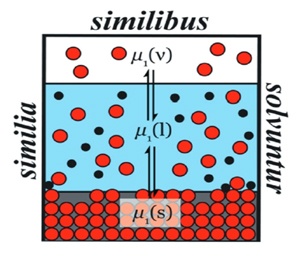June 20, 2022, 2:30-04:00 (UTC)
DO check your time zone !! 2:30 UTC is June 19, 22h30 or 10:30pm EDT !!
SciDataCon 2022 is part of International Data Week 2022, to be held virtually and in Seoul, Republic of Korea. [more about]
A session of SciDataCon-IDW Seoul 2022 will present the drivers and objectives of the recently initiated WorldFAIR project and its methodology. In a set of lightning talks, the case studies will describe the status quo and challenges for FAIR data in their domain before detailing what they will do in the WorldFAIR project. To prepare the discussion, the emerging idea of a core interoperability framework and the WorldFAIR methodology will be presented briefly.
The objective of the session is to inform participants about the WorldFAIR project and to invite collaboration. One ambition, where possible through third party effort and/or funding, is also to encourage parallel activity, to expand existing case studies or to add new research areas.
World FAIR Case Studies
- Chemistry – making IUPAC assets FAIR
- Nanomaterials – applying NanoInchi and FAIR recommendations in Nanosafety
- Geochemistry – recommendations for FAIR implementation profiles in geochemistry
- Social Surveys Data – FAIR practices for ESS and AussiESS
- Population Health – INSPIRE – Integration of population surveys with clinical and genomics data for COVID-19 research in eastern and southern Africa
- Urban Health – terminologies and making urban health data FAIR
- Biodiversity case study: digital extended specimen – GBIF (Global Biodiversity Information Facility)
- Agriculture use case: pollinator data (KALRO, Embrapa, Meise, HiveTracks)
- Implementing FAIR in the ODIS (Ocean Data and Information System) for the UNESCO Oceans’ decade.
- Disaster Risk Reduction: recommendations on making DRR data and terminologies FAIR, case studies in Africa and Pacific Islands
- Cultural Heritage: recommendations on making cultural heritage data FAIR (particularly digital representation of heritage artefacts)
Session co-organiser and contact CODATA Executive Director: Dr. Simon Hodson (simon[at]codata.org)
< back to IUPAC project 2022-012-1-024



